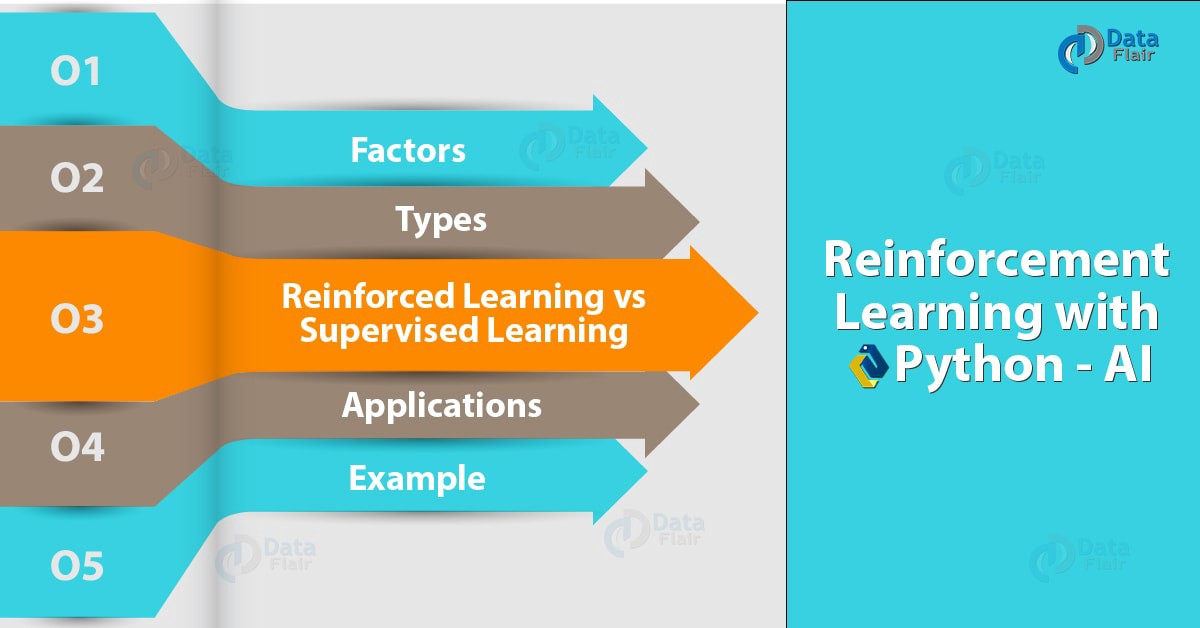
In this article, we will examine some of the main concerns and key questions related to artificial intelligence development. We will be discussing ethical issues associated with artificial intelligence's development and also exploring the implications for humans of unethical AI. This article is for researchers and students of artificial intelligence. See the link for the complete article. The following are the questions we will be discussing:
Future research in ethical AI should be guided by research questions
In creating AI systems, there are many uncertainties and ethical dilemmas. Problem formulation is one of them. This process is crucial for ethical AI, even though it can be hard and unpredictable. A recent paper by the authors was presented at ACM FAT 2019. It suggests some questions that can be used to guide future research. They recommend that companies discuss ethical issues during problem formulation and that they avoid implementing data science projects until they have discussed the ethical implications.

AI systems could be misused unethically by bad actors. Sensible AI systems may not be possible, but machine learning models can imitate human behaviors. Even if sentient AI technology does not emerge for decades, ethical AI principles can be crucial to ensure these technologies are developed responsibly. The effectiveness of industry self-regulation is often greater than that of government regulation. It is therefore crucial that companies understand the risks and ethical dilemmas involved in AI.
A thriving ethical AI system must be inclusive, explainable, and use data responsibly. AI systems should be inclusive of all segments of society and built to the highest ethical standards. Data sources must be disclosed and the model must be carefully audited before it can be trained. It must be closely monitored in order to prevent corruption and other undesirable effects. AI, as with all new technologies, is a complicated field.
Impact of unethical AI on people
While AI and the use of algorithms have become commonplace in our everyday lives, ethical questions remain. There is a growing body of research highlighting ethical implications of AI. While some experts argue that today's AI is fairly unsophisticated, they argue that future AI will be far more sophisticated. Experts predict a rapid progression from narrow AI to AI general intelligence (AGI) or superintelligence. Others worry about the impact of deepfakes and the problem of misinformation.
AI is being adopted by many industries, raising ethical concerns. Although AI offers many benefits, the use of unethical techniques has been celebrated. Similarly, unethical AI use could affect the company-employee relationship. It is not clear if AI will eventually improve or harm these relationships. For now, however, the European Union lies between China and the United States.

AI journal's special issue addresses ethical questions. The issue contains eleven articles from different disciplines. Kelley's article is a broad overview, while Toth (and colleagues) examine AI from a moral perspective, paying particular attention the issue of accountability. While Sullivan and Wamba examine how AI may impact society, John McMathews Cardon, Balague, and Balague offer a fresh perspective regarding AI fairness and corporate accountability.
FAQ
Who is the current leader of the AI market?
Artificial Intelligence (AI), a subfield of computer science, focuses on the creation of intelligent machines that can perform tasks normally required by human intelligence. This includes speech recognition, translation, visual perceptual perception, reasoning, planning and learning.
Today there are many types and varieties of artificial intelligence technologies.
There has been much debate over whether AI can understand human thoughts. Deep learning has made it possible for programs to perform certain tasks well, thanks to recent advances.
Google's DeepMind unit in AI software development is today one of the top developers. Demis Hashibis, the former head at University College London's neuroscience department, established it in 2010. DeepMind, an organization that aims to match professional Go players, created AlphaGo.
Is there another technology which can compete with AI
Yes, but not yet. Many technologies exist to solve specific problems. However, none of them match AI's speed and accuracy.
What is the current state of the AI sector?
The AI industry is expanding at an incredible rate. It's estimated that by 2020 there will be over 50 billion devices connected to the internet. This will allow us all to access AI technology on our laptops, tablets, phones, and smartphones.
This will also mean that businesses will need to adapt to this shift in order to stay competitive. Businesses that fail to adapt will lose customers to those who do.
You need to ask yourself, what business model would you use in order to capitalize on these opportunities? You could create a platform that allows users to upload their data and then connect it with others. Perhaps you could offer services like voice recognition and image recognition.
No matter what your decision, it is important to consider how you might position yourself in relation to your competitors. Even though you might not win every time, you can still win big if all you do is play your cards well and keep innovating.
What is the role of AI?
An algorithm refers to a set of instructions that tells computers how to solve problems. A sequence of steps can be used to express an algorithm. Each step has a condition that determines when it should execute. The computer executes each step sequentially until all conditions meet. This process repeats until the final result is achieved.
For example, suppose you want the square root for 5. If you wanted to find the square root of 5, you could write down every number from 1 through 10. Then calculate the square root and take the average. It's not practical. Instead, write the following formula.
sqrt(x) x^0.5
This will tell you to square the input then divide it twice and multiply it by 2.
This is how a computer works. The computer takes your input and squares it. Next, it multiplies it by 2, multiplies it by 0.5, adds 1, subtracts 1 and finally outputs the answer.
What are the advantages of AI?
Artificial Intelligence, a rapidly developing technology, could transform the way we live our lives. Artificial Intelligence is already changing the way that healthcare and finance are run. It is expected to have profound consequences on every aspect of government services and education by 2025.
AI is already being used in solving problems in areas like medicine, transportation and energy as well as security and manufacturing. The possibilities for AI applications will only increase as there are more of them.
What is the secret to its uniqueness? It learns. Computers learn independently of humans. Computers don't need to be taught, but they can simply observe patterns and then apply the learned skills when necessary.
AI's ability to learn quickly sets it apart from traditional software. Computers can process millions of pages of text per second. Computers can instantly translate languages and recognize faces.
It can also complete tasks faster than humans because it doesn't require human intervention. It may even be better than us in certain situations.
Researchers created the chatbot Eugene Goostman in 2017. It fooled many people into believing it was Vladimir Putin.
This shows that AI can be extremely convincing. Another advantage of AI is its adaptability. It can also be trained to perform tasks quickly and efficiently.
This means businesses don't need large investments in expensive IT infrastructures or to hire large numbers.
What is the role of AI?
An artificial neural system is composed of many simple processors, called neurons. Each neuron receives inputs and then processes them using mathematical operations.
Neurons are arranged in layers. Each layer has its own function. The first layer receives raw data, such as sounds and images. These data are passed to the next layer. The next layer then processes them further. Finally, the last layer generates an output.
Each neuron has a weighting value associated with it. This value is multiplied when new input arrives and added to all other values. If the number is greater than zero then the neuron activates. It sends a signal up the line, telling the next Neuron what to do.
This process repeats until the end of the network, where the final results are produced.
Which countries are leaders in the AI market today, and why?
China has the largest global Artificial Intelligence Market with more that $2 billion in revenue. China's AI industry includes Baidu and Tencent Holdings Ltd. Tencent Holdings Ltd., Baidu Group Holding Ltd., Baidu Technology Inc., Huawei Technologies Co. Ltd. & Huawei Technologies Inc.
China's government is heavily investing in the development of AI. The Chinese government has established several research centres to enhance AI capabilities. These centers include the National Laboratory of Pattern Recognition and the State Key Lab of Virtual Reality Technology and Systems.
Some of the largest companies in China include Baidu, Tencent and Tencent. All these companies are actively working on developing their own AI solutions.
India is another country that is making significant progress in the development of AI and related technologies. India's government is currently working to develop an AI ecosystem.
Statistics
- In the first half of 2017, the company discovered and banned 300,000 terrorist-linked accounts, 95 percent of which were found by non-human, artificially intelligent machines. (builtin.com)
- A 2021 Pew Research survey revealed that 37 percent of respondents who are more concerned than excited about AI had concerns including job loss, privacy, and AI's potential to “surpass human skills.” (builtin.com)
- According to the company's website, more than 800 financial firms use AlphaSense, including some Fortune 500 corporations. (builtin.com)
- More than 70 percent of users claim they book trips on their phones, review travel tips, and research local landmarks and restaurants. (builtin.com)
- Additionally, keeping in mind the current crisis, the AI is designed in a manner where it reduces the carbon footprint by 20-40%. (analyticsinsight.net)
External Links
How To
How to Setup Google Home
Google Home, an artificial intelligence powered digital assistant, can be used to answer questions and perform other tasks. It uses advanced algorithms and natural language processing for answers to your questions. Google Assistant can do all of this: set reminders, search the web and create timers.
Google Home integrates seamlessly with Android phones and iPhones, allowing you to interact with your Google Account through your mobile device. If you connect your iPhone or iPad with a Google Home over WiFi then you can access features like Apple Pay, Siri Shortcuts (and third-party apps specifically optimized for Google Home).
Google Home is like every other Google product. It comes with many useful functions. It will also learn your routines, and it will remember what to do. When you wake up, it doesn't need you to tell it how you turn on your lights, adjust temperature, or stream music. Instead, you can just say "Hey Google", and tell it what you want done.
To set up Google Home, follow these steps:
-
Turn on Google Home.
-
Press and hold the Action button on top of your Google Home.
-
The Setup Wizard appears.
-
Click Continue
-
Enter your email address.
-
Register Now
-
Google Home is now available